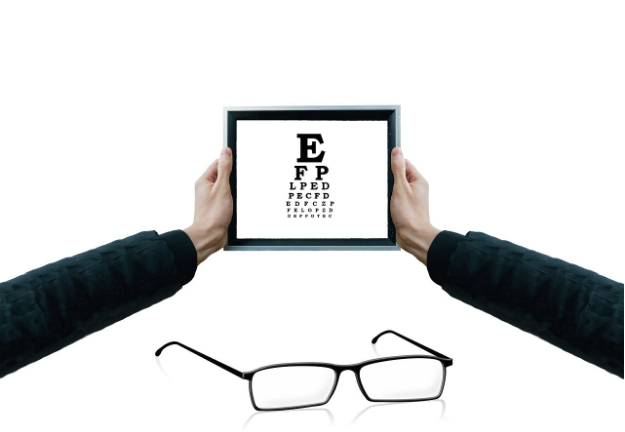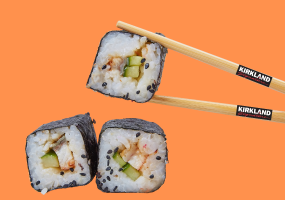
Eyesight is fundamental to quality of life. Think about the countless things you do every day simply because of your ability to see. Little wonder that of the five senses, vision is what the average person values the most. One study found that respondents feared loss of eyesight as much as they did death. How we process our environment comes primarily from what we see. Eyesight gives us the ability to read body language where a person's words don't communicate what they really mean.
For a long time, many people believed that failing eyesight was simply an inevitable part of aging or extended eye strain. In reality though, lifestyle choices can reduce or increase the risk of eye problems in the short-, medium- and long-term. Food choices are especially important since, like any other body organ, eye health is dependent on the availability of sufficient quantities of certain nutrients.
For that reason, there are foods that substantially delay or prevent the onset of eye problems. While a good vision insurance plan is vital for maintaining eye health, the food you eat matters a great deal. There are hundreds of such foods but we'll cover 5 of the most important.
1. Carrots
There's perhaps no other food that's more worthy to kick off this list than carrots. The adage 'rabbits never wear glasses' may be a little ridiculous but has plenty of truth. Carrots have always been known as great for improving vision. They are rich in beta carotene and vitamin A, both of which strengthen the eye surface, prevent eye conditions and accelerate healing from eye infections.
One major advantage carrots have over other foods is that they are easy to eat on the go and don't require cooking or much preparation. So you don't necessarily need to have them in your meals. You can have a bag of carrots with you that you snack on in the afternoon at work or in the evening on your way home. For that extra touch of beta carotene, shred and sprinkle carrots in your soups, salads, muffins or pancakes.
2. Fish
Fish, especially salmon, can be a handy source of the nutrients your eyes need. Fish are rich in omega-3 fatty acids that have always been highly recommended for brain health. Not as many people know that these fatty acids also contribute to the development of eyesight. In particular, omega-3 acids strengthen the eye's retina while preventing dry eyes.
Consider including fish into your meals at least once a week though the more the better. Grill or broil the fish. If you are going for salmon, choose the wild-caught as opposed to the farm-raised. Farm-raised salmon tends to have more of the unhealthy saturated fats and less of the omega-3s when compared to wild-caught salmon.
3. Eggs
Eggs are an extremely versatile food. While there are health risks with taking eggs in excessive quantities, the benefits of moderate consumption far outweigh any risks.
As far as eye health is concerned, egg yolk contains zinc, zeaxanthin, lutein and vitamin A, all of which are essential for eyesight. Vitamin A protects the cornea. Zeaxanthin and lutein reduce the risk of age-related cataracts and macular degeneration. Zinc enhances retina health and improves night vision.
There's no scarcity of options in how you can have your eggs whether for breakfast, lunch or dinner. Hard-boil and eat them with a salad. Pan fry and slide them in your sandwiches.
4. Almonds
Nuts and seeds like peanuts, hazelnuts and sunflower seeds are largely good for eye health but almonds are arguably the best of them all. They contain vitamin E that minimizes the accumulation of unstable molecules that would attack eye tissue. This prevents age-related cataracts and macular degeneration. The recommended daily intake of vitamin E is 15 mg or the equivalent of 22 international units (IU). A quarter cup of almonds has 11 IU so would already take care of half of your daily requirements.
Like carrots (and boiled eggs too), almonds can be taken as a snack in the go. They can also be included in your salads, mixed in your yogurt or added to your breakfast cereal. A word of caution on almonds though-they are high in calories so limit your intake to no more than 2 quarter cup servings per day.
5. Kale
Kale is often considered a superfood because it's packed with so many critical vitamins, minerals and nutrients. It's certainly excellent for eye health. Like eggs, kale has the valuable antioxidants zeaxanthin and lutein. The antioxidants don't occur naturally in the human body so the only way to satisfy the body's quota is through meals.
A 100 gram (one and a half cup) serving of kale has 11.4 mg of lutein. The daily recommended intake of Lutein is 10 mg. Though not as readily as eggs, almonds and carrots, you can make your kale a snack. Shred each leaf into small pieces, dip it in olive oil and bake for 15-20 minutes until the kale pieces get crispy.
For varied reasons (such as a very restrictive diet), some people may have difficulty obtaining these nutrients through their food. In that case, liaise with your eye doctor to explore what eye supplement options you have at your disposal.
While the foods discussed here can prevent eye problems, you are less likely to experience serious vision problems if you get treatment early. Ergo, whenever you notice any significant change to your eyesight, schedule an eye exam with an ophthalmologist or optometrist. Change here could mean image distortion, reduction in peripheral vision, flashes or floaters in the field of vision or regular changes in the clarity of sight.
* This is a contributed article and this content does not necessarily represent the views of foodworldnews.com









